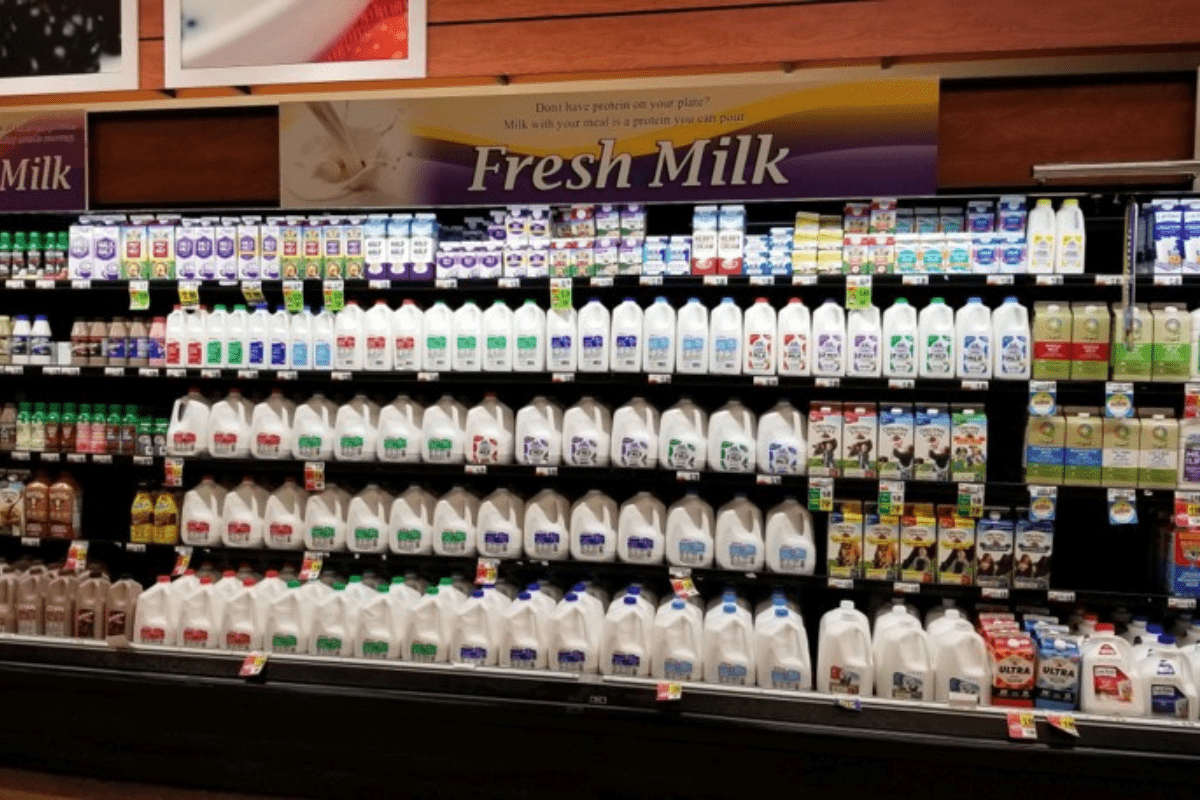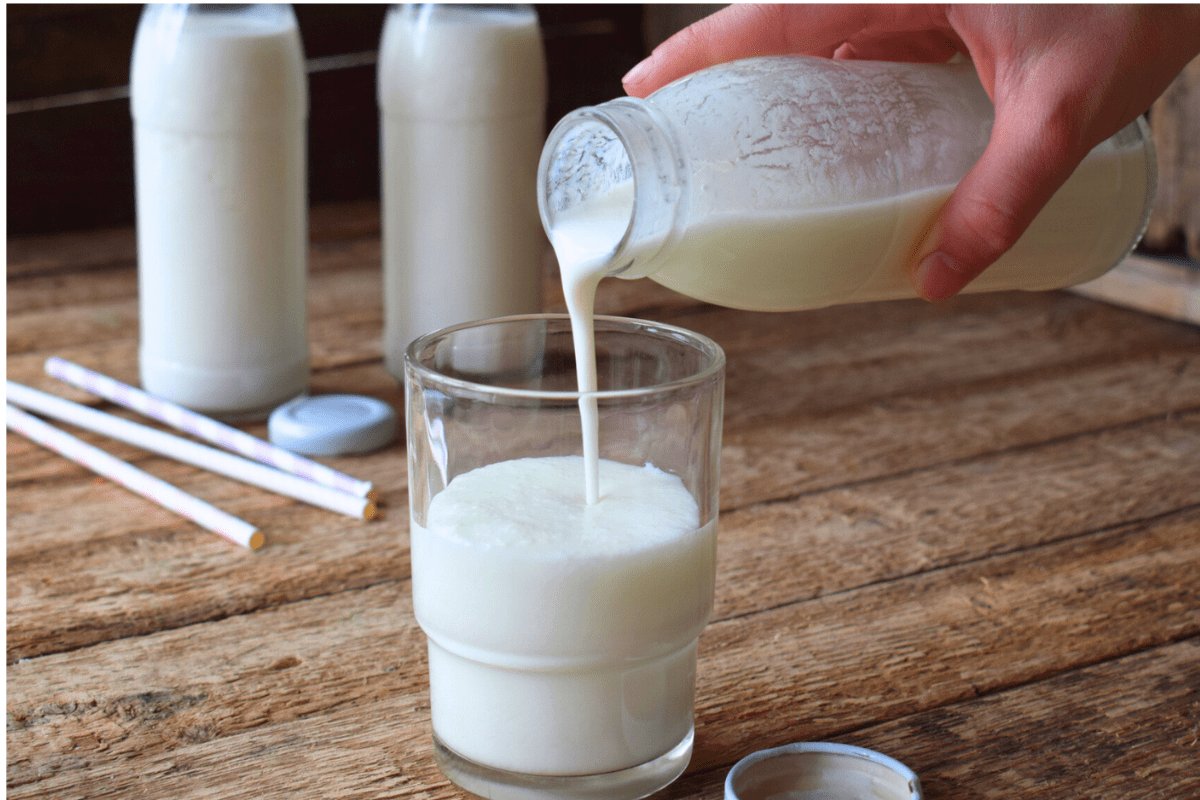Learn Why Dairy is a Global Leader of Sustainability
Many consumers are showing a heightened interest in where their food comes from and its impact on the environment. As a global leader in sustainability, the dairy industry has had a long-standing commitment to economic, social, and environmentally sustainable goals.[1]
The United Nations launched the Sustainable Development Goals to improve lives around the world. The dairy community is aligned with these goals, and advocates for meeting the needs of the present without compromising the ability of future generations to meet their own needs. Actively participating in a natural nutrient cycle, the dairy industry upholds sustainable food systems nourishing people, animals, and land for now and the future.
The Sustainable Development Goals (SDGs)
Dairy is committed to the 5 P’s of Sustainable Development Goals by maintaining focus on the benefits for people, animals, and land. By investing in global communities, tracking sustainability commitments, and advancing research, dairy is a driver of the SDGs by producing high quality products in a responsible manner.
The 5 P’s Include:
1. Planet
Farmers are working to use the land responsibility and protect the natural environment. Dairy is using only 7% of the total land on earth for feeding their animals.
2. Prosperity
Global dairy communities provide income and livelihood for up to one billion people.
3. People
Available to consumers 365 days a year, dairy helps nourish people of all ages.
4. Peace
As a large contributor to employment and minimizing food insecurity, dairy plays a key role in supporting communities.
5. Partnerships
The Dairy Sustainability Framework has multi-stakeholder collaboration at local and regional levels.
In addition to the 5 P’s, new technologies and farming practices used by dairy farmers help reduce dairy’s environmental footprint and improve efficiency, making American dairy farmers an important part of sustainable food systems. For example, the United States is recognized as having the world’s lowest emissions intensity per liter of milk produced, while being the largest single country producer of cow’s milk.[2]
Working Together, We Can Honor the Harvest
Honor the Harvest is an initiative from the U.S. Farmers and Ranchers organization, with the goal of connecting farmers and ranchers to food and agriculture stakeholders to co-create sustainable food systems.[3] Honor the Harvest ensures all people will have access to nutrient-dense foods, as well as utilization of parts of foods people can’t or won’t eat by moving nutrients through food systems — from people, to animals, and back to the land to grow food more sustainably — rather than going to a landfill. We all have a role to support this cycle and build sustainable food systems that benefit people, communities, and the planet.[4]
Working together to provide sustainable diet and nutrition, food is used purposefully and never wasted. One of the biggest impacts you can make as a consumer is to manage your food storage and utilize leftovers to prevent food waste from the start, thus minimizing your carbon footprint.
By increasing accessibility to dairy, many countries have safe and affordable sources of nutrient-dense foods that have been produced with the lowest environmental impact and highest efficiency in the United States.
Sustainable Diet and Nutrition
Sustainable diets are dietary patterns that promote all dimensions of individuals’ health and wellness. These diets have low environmental impact and are accessible, affordable, safe, and culturally acceptable.
Sustainable nutrition has been defined as the ongoing science-based pursuit for solutions that provide affordable, accessible, and nutrient-rich foods that can nourish the world’s growing global population, while also protecting environmental resources. [5]
Sustainable and healthy diets consider international nutrition recommendations; the environmental cost of food production and consumption; and the adaptability to local social, cultural and economic contexts. The aims of sustainable healthy diets are to achieve optimal growth and development of all individuals, and physical, mental, and social wellbeing at all life stages for present and future generations. Malnutrition and undernourishment are rising risks due to climate change among other factors, and the dairy community is dedicated to being part of the solution for those risks, as well as poverty and hunger.
Dairy Provides Sustainable Nutrition
Dairy products are considered a basic food group in many diets and countries. Dairy contains key nutrients that Americans should consume more of—also called “food components of public health concern”—including vitamin D, calcium, and potassium.[6] The 2020-2025 Dietary Guidelines for Americans encourage most Americans to consume three servings of dairy per day due to the powerhouse of nutrients it provides.
13 essential nutrients provided by dairy:
- protein
- calcium
- phosphorus
- vitamin A
- vitamin D
- riboflavin (B2)
- niacin (B3)
- pantothenic acid (B5)
- cobalamin (B12)
- iodine
- potassium
- selenium
- zinc
Dairy provides a nutrient-dense food to sustain the health and wellness of families, while not providing a large carbon footprint. Today, the term “carbon footprint” is used to describe the amount of carbon being emitted by an organization. Carbon footprints create more greenhouse gasses and advance climate change.
It’s important to consider both the environment and nutrition quality of foods produced. The Nutrient to Climate Impact (NDCI) index is Nutrient Density divided by the carbon dioxide emitted? for 100 g of the food item. [7] The NDCI index for milk was substantially higher than for the other beverages studied including soy and oat drinks. It’s also been determined dairy is a nutrient-dense food, and consumption of dairy products is associated with better overall diet quality. [8]
The Natural Nutrient Cycle
The nutrient cycle is a system where energy and matter are transferred between living organisms and nonliving parts of the environment. This occurs as animals and plants consume nutrients found in the soil, and these nutrients are then released back into the environment via death and decomposition. The aforementioned Honoring the Harvest initiative is about using food to nourish people, moving nutrients through the food system to animals for nourishment, and then back to nourish the land to grow more food, rather than going to waste in a landfill. It’s easy to be part of the cycle by taking small actions in your home to reduce the valuable nutrients lost and even help the planet, too.
Nourishing People
We need to ensure a variety of nutritious foods, including nutrient-dense dairy foods, are available and affordable to help all people thrive. Dairy provides a nutrient-dense food to sustain the health and wellness of their families by contributing to nutrient security in the future.
Enough food is produced globally to nourish 10 billion people, but food insecurity impacts people in every region, including 1 in 8 Americans. One-third of ALL food is lost or wasted so it’s important to take action to limit food waste.
Nourishing Animals
Dairy cow care has always been a priority for the dairy community. Dairy cows have a unique, 4-chambered stomach, so they can unlock nutrition from parts of plants, such as almond hulls, canola meal, or citrus pulp, that humans cannot eat and would otherwise become landfill waste. Approximately 80% of what cows eat cannot be eaten by people.
A cow’s comfort and health is very important to dairy farmers overall sustainability efforts because healthy animals produce high-quality dairy foods. Dairy cows require nutritious diets, healthy living conditions, and good veterinary care to keep them thriving and comfortable.
Nourishing the Land
Food production will always come with an impact on the environment, and American dairy farmers is making it a priority to minimize its environmental footprint. Dairy farmers are committed to sustainability by working to develop farming strategies and recycling practices so that they use as little water and energy as possible in the management of their farms.
In dairy farming, nutrients are able to return back to the land to replenish the soil and complete the natural nutrient cycle. The distinct composition of their manure can restore nutrients in the soil, helping it be healthier, so food can be grown with reduced use of synthetic fertilizer, which is fossil fuel based.
Dairy farmers continue to preserve land and resources for future generations given that most dairy farms are family owned. The dairy community continues to be committed to the responsible use of the environment through conservation and sustainable practices to enhance ecosystem resilience and human well-being.
The Overall Sustainability of Dairy
Dairy is essential in the endeavor towards ending hunger, achieving food security, and improving the nutritional value of diets in a sustainable manner. From people to animals and back to the land to grow food more sustainably, dairy farmers embrace the act of Honoring the Harvest by providing a nutrient dense product. Dairy remains an extraordinary food group due to its unrivaled health and nutrition benefits to people of all ages.
[1] National Dairy Council https://www.americandairy.com/
[2] US Sustainablility https://thesustainabilityalliance.us/u-s-dairy-fact-sheet/
[3] US Farmers and Ranchers in Action https://usfarmersandranchers.org/honor-the-harvest/
[4] US Dairy https://www.usdairy.com/about-us/innovation-center
[5] World Health Organization https://www.who.int/publications/i/item/9789241516648
[6] https://www.idfa.org/dairynourishes
[7] Smedman, A., Månsson, H. L., Drewnowski, A., & Edman, A.-K. M. (2010). Nutrient density of beverages in relation to climate impact. Food & Nutrition Research. https://doi.org/10.3402/fnr.v54i0.5170
[8] Toon van Hooijdonk, Kasper Hettinga, Dairy in a sustainable diet: a question of balance, Nutrition Reviews, Volume 73, Issue suppl_1, 1 August 2015, Pages 48–54, https://doi.org/10.1093/nutrit/nuv040





